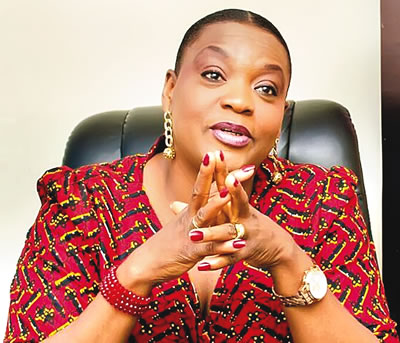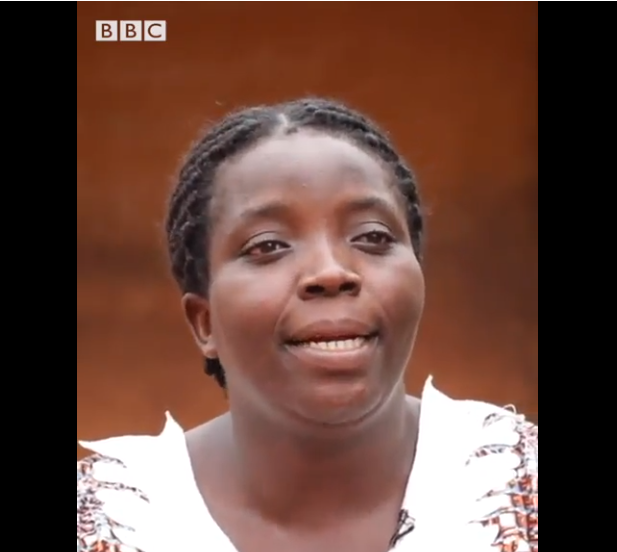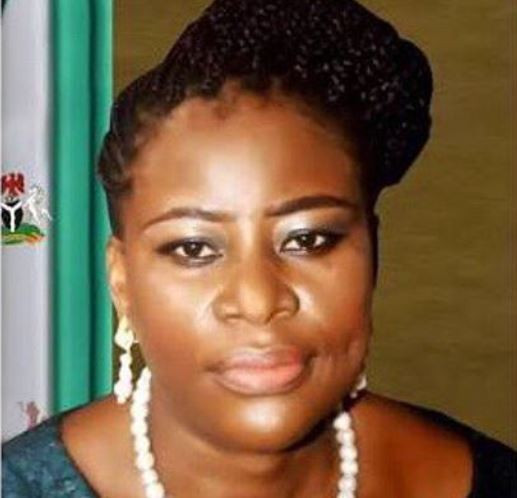Adeyoyin Adesina is an experienced educator and Chief Executive Officer of Corona Schools’ Trust Council. She has built her career in the educational sector where she has been impacting the lives of students and teachers alike for over 18 years. A degree holder in English Studies from the University of Ife, a Post Graduate Diploma in Education from the University of Lagos and a Post Graduate Certificate in Education (International) from the University of Nottingham, she is a mentor, coach, public speaker and very passionate about educating young minds. In this interview, she talks about the state of the country’s education, her journey into the world of education, amongst other things.
As a seasoned educator of several years, does the country’s present standard of education give you cause for concern?
Yes, but it is not enough to just say ‘yes’. I acknowledge we have come a long way and even with the worries and concerns I have, I know the educational system in Nigeria has made some progress from where we were before. However, if you measure it with the lightning speed at which things are improving and changing globally, we are still a very far cry from where we should be in the education industry. What makes it more painful is that not only are we aware of this, sadly, our government has not seen the need to attach due importance to education policies and infrastructure. There is so much more we need to do in terms of improving educational standards in Nigeria. As a nation, we are educated, we travel to other countries and see the way things are done but never replicate it back home. Our tertiary education requires a lot more attention than it is presently getting. Our children, because of their exposure, do not want to remain in Nigeria and it is becoming an endemic problem and the government should wake up to its responsibilities before it is too late.
What attracted you to the world of teaching?
I wasn’t always a teacher; I used to work in a bank. Before working in the bank, I worked in the print media for a while and I loved it. I served in Jos and did my youth service at Standard Publishing Company, publishers of Standard Newspapers. I actually stayed on after service because I was very interested in what I was doing then. I did this for about a year before coming back to Lagos and got a job in the bank and that started my journey in the banking sector. Somewhere along the line, I discovered I wasn’t finding fulfillment in what I was doing. Around this period, I was teaching a pre-marital/counseling class in my church and I knew I had found my niche as I enjoyed it thoroughly. I took further classes in counseling to brush up my skills and this spurred my interest in teaching and that was how it all started, and I have never looked back since then.
Take us through your career journey over the years
I started teaching at a private school in G.R.A, Ikeja and within a couple of years I rose to become the academic superintendent of the primary section. In that time, I had the opportunity to travel in the Summer of 2002 for an education development programme for teachers in the U.K and it was there I was introduced to the then Educational Administrator, Corona Schools’ Trust Council. We hit it off and she offered me a job. I came back and resumed at Corona and started work as a teacher and my journey progressed quite rapidly. I started as a teacher in Corona School Victoria Island in 2002 and by April 2003, I had risen to become the Deputy Head of School in Victoria Island. I was D.H.S for three years and in 2008, I rose to the position of the Head of School. A few years after that, I was asked to start the Corona School, Lekki, the newest of the Corona Schools. I was the pioneer Head of School at the Corona School Lekki where I worked for another six years before being moved to Corona Secondary School, Agbara where I worked for another three years as Principal and in April 2017, I was promoted to the position of Chief Executive Officer, Corona Schools Trust Council.
Looking at the constant strikes that affect students in Federal universities, what would you suggest as the panacea for this age-long problem?
I think it is important to look at the reasons for the strike, which is oftentimes, a clamour for better pay, welfare for the lecturers amongst other things. Rarely do the students go on strike, it is usually the lecturers that embark on strike actions. This is why I said we need to place a premium on the education sector. In some advanced countries, teachers are rated as highly as doctors and other professionals unlike what obtains here in Nigeria and if the right priority is given to the sector, I doubt we would have these strikes coming up so often. The government needs to pay attention to their welfare, provide a conducive environment for the staff and students and generally upgrade the infrastructure. I graduated from the University of Ife many years ago and when I went back to my alma mater recently, I almost wept. Instead of things getting better, there is decay and erosion of values. When I was a student in the university, I was so proud of the school. We were just four in our rooms then but what do we have now? Everything is falling apart. What is the welfare program available for lecturers? How often are they paid and how often are their salaries reviewed? These are the major issues we have to consider. I am not saying the strike is the solution because as they are in a standoff with the Federal Government, the students are stranded at home and when they resume, the issues are not fully resolved so another strike is imminent. If the government has a roadmap for education for say, 10 or 20 years and is systematically working to achieving this, it would give us hope. But nobody makes any plan in this country and for the few that do, these plans and projects are not sustained by the incoming government as they roll out their own plans and agenda. Education shouldn’t be politicised.
As CEO, what does your job entail?
(Laughing) I call myself the Chief Executive Messenger because I seek, more often, to do what makes for the progress and satisfaction of all our stakeholders. My role is simply to actualise the strategic imperatives of the Trust Council. Corona Schools’ Trust Council will be 64 years this year and we are still evolving. As a leading educational institution in Nigeria, we hope to translate this to other parts of the world. My role is to ensure we deliver what we promise to our customers, which is to deliver world-class education. As a leading educational institution in Nigeria, we strive to ensure our relevance and influence, not just in the private sector, but also within the government and public sector.
This school has produced so many big names in Nigeria today, how does this make you feel?
I can tell you that there is a feel-good factor in seeing that you are doing something well, that after so many years down the line, the products of the schools can and do acknowledge the quality and pedigree of their early years education at Corona as what has set them off well on the path of life. It is gratifying to see all of our alumni doing well and excelling in their areas of chosen endeavours. We are currently working on bringing our alumni together and we know this would be a great motivator and influence factor for people to see the outcome of quality education. Seventeen years of my life have been given to this great establishment and I am proud and happy to be a part of it.
Running a private school can be very challenging, what are some challenges you face?
Living in Nigeria itself is challenging. Running a technology-based school where power is not guaranteed is a huge challenge. We all know the cost of diesel and the huge cost centre it represents. Excelling at running a school with the standard or quality of available workforce in the market is challenging. How do you deliver on your promise? As we see, our tertiary institutions are churning out half-baked graduates yearly, this is a huge problem. Many parents are facing uncertainty now because of the unstable economy. Many are not able to give their children the quality of education they desire. Amidst all of these, we must find a way to move on and excel. These challenges give us the opportunity to think of creative ways to pull through and overcome.
As a teacher, counselor and shaper, do you take special care in guiding young female students?
We are dedicated to turning out well-rounded young women and men and for every stage of their progression, we know they will be faced with fresh challenges at every developmental stage of their lives and we try to prepare them for these; we teach them about their physical make up, about life, the birds and the bees, monthly cycle, sex education, the do’s and don’ts of their bodies and so on. This is more necessary in this day and age where children are under attack, living with paedophiles and all. We have created an environment of trust in our schools and children can freely disclose to us if they are touched inappropriately in any way. Children do not lie mostly and when a child opens up to you, do not make them feel like they did something wrong. We also try to educate parents who might expose their kids to danger unknowingly.
Tell us something that has influenced your life and career positively?
I would say God, unequivocally. I am a Christian and, in every situation, I ask for God’s help and guidance irrespective of where I find myself. I always pray in every situation and ask that the essence of who I am shines through. I am an influencer and I am conscious of this and this guides me in how I act and speak. There are so many people looking at me and emulating me that I am not aware of and this influences everything I do. I look up to a lot of people and believe I should learn lessons from other people’s experiences.
What advice would you give a woman starting out on this career path?
Be true to yourself and who you are, do not try to walk in anyone’s shoes. Integrity is something we have sadly thrown away these days, but it is the one distinguishing factor that would help you irrespective of your position in life. No matter what you do, your integrity is the only thing that would stand for you and whatever you do, ensure you do it with all your heart, this is the only autograph you can leave. Do not let one part of your life suffer at the expense of another, find that balance and give everything a 100 percent.
What are three life lessons you have learnt and want to share with us?
One is to be yourself. The second is to have and maintain integrity at all times because that is what will help you sleep at night. The third, love people, help people. Take them as they are, as you are going up in life, take others along with you.

CEO Corona Schools’ Trust Council, Mrs. Adeyoyin Adesina.
You do so many things at the same time, work full time and are raising a family. How do you make them all work?
It hasn’t always been easy and I must confess that when my family was still very young, I had to put career on hold for them. All my children are grown and have left home now so that is no longer a problem for me. I had a meeting that ran late yesterday and I couldn’t go home so I stayed with my son in Dolphin estate. My husband thankfully understands and knows this is my passion. When I was still having children, I left paid employment so I could devote time to my growing children. It requires delicate balancing, but it has to be done. There was a time I used to go home with my laptop every night and work late into the night but I realised this wasn’t the best, so I only go home with it now when very necessary. This was what worked for me and while there may be a general principle there, I also realise that one cap does not fit all at the end of the day and what works for me might not work for the next person.
As a mentor, what would you say is the importance of mentoring for women?
Nigerian women need to support one another especially those juggling home and careers. It is even harder for single mothers and we have all realised that we need two incomes to support a home. We need to create effective support systems for one another especially if you have a broad experience and can guide younger women just coming up. I mentor several teachers, counsel a couple and encourage my managers to do same for other people. In church, I lead a group of women that support one another and what we are doing now is supporting young wives that are struggling with wifehood, motherhood and career. We pray for one another, help one another financially or just offer advice and guidance. I have three biological children and uncountable other children that I support, guide and mentor.
What is next for you?
(Laughing) Retirement and enjoyment of life. A lot of us don’t plan for retirement when we are young, and this would be a problem when you get to that stage. I used to think I would open a school when I retire but I have changed my mind, I am not doing that again. I would always be a teacher, educate and train others as long as I have the strength but this wouldn’t be the core of what I would do in retirement. I would do the things I love that I have been unable to do all these years including traveling, spending more time with my family, give my services out to those who need it. In my church, we recently organised a programme where we gathered the teachers in the community and held a workshop on capacity building at no cost to them; I would do more things like this and also make time for food business. I love to cook.
So how do you relax and unwind?
My routine now doesn’t allow for as much rest and relaxation, sadly. The horrendous traffic also contributes to this. My unwinding, for now involves not taking my laptop home from work and after eating at night and sorting myself out for the following day, I basically become a couch potato, watching T.V before going to bed. I try to read as much as possible. I have books everywhere; in my car, on my phone, by my bed, I try to read even if it is a page per day. I also try to make time to see my children when I can.
What is the one thing you want women reading this to take away?
Be you, take the time to know yourself and regularly introspect, place value on yourself always. It’s very important that a second party does not dictate the value you place on yourself. Finally, exercise utmost integrity in all you do. When you place the right value on yourself, it is easier to act with integrity because it becomes easier to see yourself above certain things and situations.
Interview by: Tobi Awodipe for Guardian















